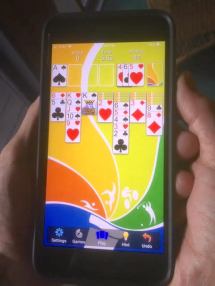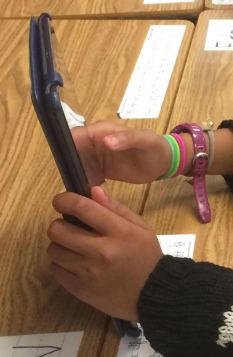 Currently, a conversation about screen time is occurring on my area listserv. It’s interesting to read various points of view. Some people feel that various apps designed to limit screen time and other digital activities are the way to go. Others point to need to be hands-on about contracts, agreements, and digital rules of the road. Almost everyone seems to be frustrated about defining the line between schoolwork and recreational screen times. Twenty-first Century digital parenting never lacks for challenges!
Currently, a conversation about screen time is occurring on my area listserv. It’s interesting to read various points of view. Some people feel that various apps designed to limit screen time and other digital activities are the way to go. Others point to need to be hands-on about contracts, agreements, and digital rules of the road. Almost everyone seems to be frustrated about defining the line between schoolwork and recreational screen times. Twenty-first Century digital parenting never lacks for challenges!
Over the years, however, many parents have consistently told me about four effective steps they have taken when it comes to screen time. Continue reading “No Electronic Devices in Kids’ Bedrooms”

 If your home is anything like mine, you have surge protectors all over the place, providing power and protection to appliances and 21st Century digital devices. Even my refrigerator is plugged into one after a power surge took out a number of refrigerators in the neighborhood.
If your home is anything like mine, you have surge protectors all over the place, providing power and protection to appliances and 21st Century digital devices. Even my refrigerator is plugged into one after a power surge took out a number of refrigerators in the neighborhood. Distraction in 21st Century schools is a huge issue.
Distraction in 21st Century schools is a huge issue.  As a specialist in 21st Century educational technology and media literacy, I’ve often helped parents select a parental control app that is right for each family. Lots of these apps are out there, and they allow adults to ensure that their children are not misusing their mobile devices
As a specialist in 21st Century educational technology and media literacy, I’ve often helped parents select a parental control app that is right for each family. Lots of these apps are out there, and they allow adults to ensure that their children are not misusing their mobile devices

 Various types of digital devices and toys are now a given in the lives of many children — even toddlers and preschoolers. From three and four years of age, many of their play activities include a vast array of toys and books that talk, beep, sing, cue activity, and play music. Even two-year-olds quickly learn how to use digital devices — after all they are generally adept at figuring out cause and effect and how to operate buttons.
Various types of digital devices and toys are now a given in the lives of many children — even toddlers and preschoolers. From three and four years of age, many of their play activities include a vast array of toys and books that talk, beep, sing, cue activity, and play music. Even two-year-olds quickly learn how to use digital devices — after all they are generally adept at figuring out cause and effect and how to operate buttons.
You must be logged in to post a comment.